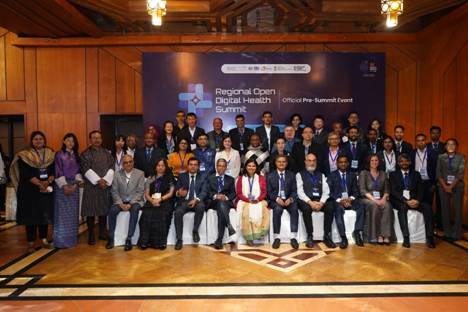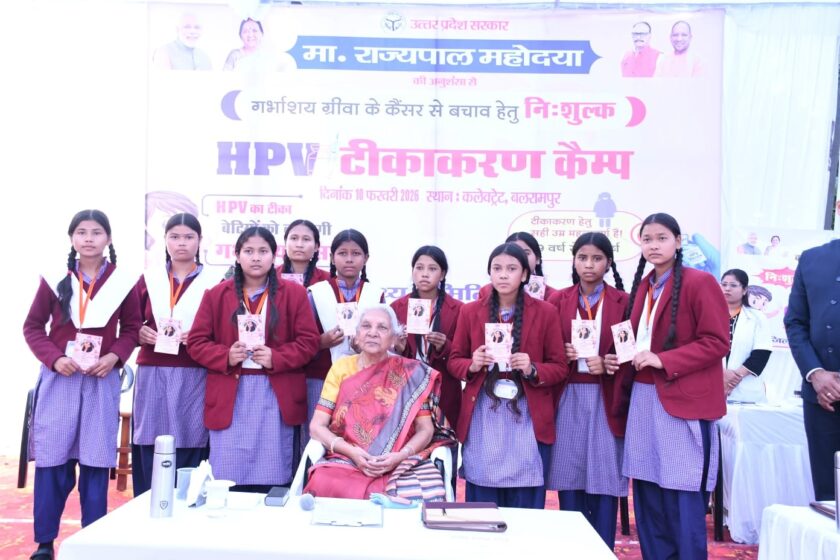Focus on Digital Public Infrastructure, Open Standards and GenAI for Stronger Regional Health Systems
New Delhi | India opened the second edition of the Regional Open Digital Health Summit (RODHS) 2025) in New Delhi, bringing together senior government officials, global health bodies and technology innovators from across South-East Asia to chart the future of digital health in the region.
Organised jointly by the National e-Governance Division (NeGD) under the Ministry of Electronics & IT, the National Health Authority (NHA), the WHO South-East Asia Regional Office, and UNICEF, the three-day event aims to strengthen cooperation on Digital Public Infrastructure (DPI), open standards, interoperability, and the role of emerging technologies like Generative AI in accelerating Universal Health Coverage (UHC).
Strong Push for Collaboration and Interoperability
Speaking at the inaugural session, Rajnish Kumar, COO, NeGD, said that breaking silos is vital for building secure and interoperable systems. “A joint governance model between the Ministry of Health and Family Welfare and MeitY is essential to strengthen India’s National Digital Public Infrastructure,” he said, emphasising the need to safeguard platforms such as ABDM, CoWIN, Aadhaar and UPI.
Manoj Jhalani, Director (UHC/Health Systems), WHO SEARO, underlined that trust and interoperability are the backbone of scalable digital health systems. He noted that the summit would significantly expand regional technical capabilities.
UNICEF India’s Arjan de Wagt drew attention to community-focused digital health strategies. “Technology must ultimately serve families, health workers and children—especially the most vulnerable,” he said.
Highlighting India’s leadership in DPI, Dr. Sunil Kumar Barnwal, CEO, NHA, said that India’s identity, payments and health platforms have demonstrated how public digital goods can transform healthcare delivery.
Digital Blueprint for the Region
Punya Salila Srivastava, Secretary, Ministry of Health and Family Welfare, stressed that health outcomes depend on cross-sectoral collaboration. She said that the National Digital Health Blueprint (2019) and the National Health Policy (2017) provide the foundation for UHC through technical standards and governance frameworks.
In the plenary discussion, leaders from NeGD, NHA, WHO and UNICEF agreed that the region must move from isolated pilot projects to large-scale, inclusive digital health ecosystems backed by open standards, full-stack digital frameworks and DPI.

Focus on Global Standards, DPIs and GenAI
Sessions on the first day explored a wide range of themes:
-
Foundational DPI: Experts from UIDAI, NPCI, ONDC, the World Economic Forum, and representatives from Thailand, Nepal and the Maldives highlighted how digital identity, payments, registries and data exchange form the backbone of modern health systems.
-
FHIR Adoption: Specialists from HL7, CDAC Pune, Swasth Alliance and officials from Bangladesh and Sri Lanka discussed how global standards like FHIR can transform health data exchange, but emphasised the need for strong governance and workforce capacity.
-
GenAI for Global Health: Leaders from India, Nepal, Thailand and international bodies examined how GenAI can bridge data fragmentation, improve clinical workflows and ensure equitable care—provided interoperability is prioritised.
-
GenAI Demonstrations: Innovators from Ekacare, Google, NiramAI, Sunoh.AI (eClinicalWorks) and IIT Delhi showcased cutting-edge applications including AI-powered clinical documentation, early breast cancer detection tools, multilingual patient support, and diagnostic AI platforms.
Regional Cooperation for UHC
Day one of RODHS 2025 highlighted strong regional commitment to build resilient, interoperable and equitable digital health systems. With South-East Asian nations increasingly adopting DPI-based models, the summit underlined shared priorities: open standards, secure data exchange, cross-border collaboration and responsible use of AI.
The three-day summit will continue to discuss governance, capacity building and scalable digital health innovations aimed at advancing Universal Health Coverage across the region.










